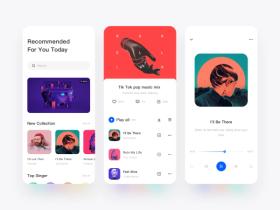Contents
7 Reasons Why I Need an MVP for My Startup
Published: May 2, 2022
9 min read
In this article, you'll learn:
1
🤔 What is an MVP?
2
🗃️ Case study: Foursquare, Airbnb
3
📈 How can you benefit from developing an MVP?
4
🗃️ Case study: Uber, Unsplash
5
💡 Conclusion
A simple way to avoid these mistakes was suggested by Eric Ries. Nowadays his “lean startup” methodology has proven its efficiency and is widely used all over the world. It is aimed at shortening product development cycles and building startups according to the needs of early customers in intention to reduce risks and outlays. That’s exactly why MVPs are necessary.
🤔 What is an MVP?
MVP stands for a minimum viable product. What is it? Let’s have a closer look at the meaning of each word in this phrase:
- Minimum means a product is so poor, simple and bad that no one wants to buy or use it. However, you will need a minimum amount of resources to create such a product.
- Viable means a product of your dreams – it’s useful, interesting, fast and has a beautiful design. But you should know that it takes a lot of time, money and efforts to create a viable product.
What is a compromise? An MVP which is a product with a minimum set of features that solves a definite problem of users. It allows you to spend as little resources as possible to engage your first users and get useful feedback.
“The minimum viable product is that product which has just those features and no more that allows you to ship a product that early adopters see and, at least some of whom resonate with, pay you money for, and start to give you feedback on.” – Eric Ries
It’s important to understand: an MVP is not synonymous with unfinished or a primitive product that was created in a hurry. By creating an MVP you can better understand your audience needs and expectations and fit your app to it.
It’s also important to choose a right platform for building an MVP. Luckily, you can read about iOS vs Android development on our blog.
📈 How can you benefit from developing an MVP?
What lesson can be learned from the examples mentioned above? The answer is simple: it’s better to create a minimum viable product for your startup rather than not. Why? Check out our top 7 reasons to build an MVP for startups!
💵 Minimize development costs
Never forget the rule: more complicated startups require bigger investments. For every additional feature or more beautiful design you will have to pay. But so as to develop an MVP (it’s still a product, even in its simplest form) you will need a minimum of resources.
However, when you have an idea only in your head it may sound not very promising for investors. One of the benefits of an MVP development for a startup is that you will have something more serious and perspective than just your thoughts and words. It definitely increases your chances of being noticed and heard.
🔋 Don’t waste your efforts
And the last but not least. It’s been said enough about an MVP development cost and advantages, but what you also save is your efforts. An MVP is an important step, which will help you to plan your startup wisely and scale your business properly.
Don’t doubt that you will spend more efforts on tailoring your app to users’ requests and dealing with the risks than on building an MVP. So why not to choose the easiest way?
🗃️ Case study: Uber, Unsplash
We are getting to the end of the article, but before that, we would like to present you two more examples of successful startups which began with an MVP.
Uber
A world-renowned taxi app Uber at the beginning was pretty simple. It was a typical MVP in all meanings:
- The app had plain design;
- It had only 1 main function – to connect iPhone owners with drivers and provide them with a credit card payment system.
- It was aimed to solve only 1 specific problem of users – to get a taxi as cheap and fast as possible.
💡 Conclusion
So it seems that we reviewed all the main reasons why your startup needs an MVP. Let’s quickly remember pros and cons of a minimum viable product.
Was it helpful?
Read also

Stormotion's ChatGPT Journey

Top 5 Best Practices for Integrating ChatGPT in Your App

How to Build SaaS App Like Spotify
Our clients say
![Stormotion client Pietro Saccomani, Founder from [object Object]](/static/40e913b6c17071a400d1a1c693a17319/b0e74/pietro.png)
They make the whole business work for us, and their improvements are fundamental to our operations. They’re reliable, honest, and willing to try new things that will help us. We appreciate how flexible and easygoing they are.
Pietro Saccomani, Founder
MobiLoud
